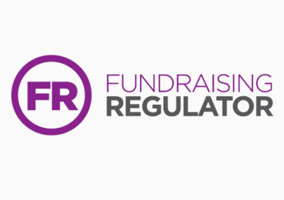The Fundraising Regulator has issued an alert to charities after being made aware of an “email scam” asking for payment for the Fundraising Preference Service.
The regulator sent out an “important alert” email to fundraising charities yesterday warning them of what it called an “invoice scam” in relation to the Fundraising Preference Service. The alert said the regulator had “been made aware of an email scam being sent to charities, asking to receive payment of the Fundraising Preference Service or implying that an invoice is due”.
Concerns about the scam were first raised on Twitter by Matt Page on 5 September, who has said he received a scam email in August.
I'm wondering why it's taken @FundrRegulator nearly a month to say anything about the spam mailing going round in their name. Mine came 22-8 https://t.co/bixQ5lYDdu
— MattPage (@MattPage) September 19, 2017
Just had a phishing email purporting to be from @FundrRegulator about #FPS. Am wondering where they've managed to find that link from. #hack
— MattPage (@MattPage) September 5, 2017
The regulator said: “We would like to clarify that we do not send out invoices for the Fundraising Preference Service, as the cost of this service is covered by the fundraising levy”.
A spokesman for the Fundraising Regulator told Civil Society News that “a number of charities have been invoiced fraudulently” about the FPS, and said the regulator has alerted Action Fraud.
“A number of charities have been invoiced fraudulently, although we do not believe that any have paid. We have alerted Action Fraud to this phishing attempt and we are currently raising it with sector bodies including the Charity Commission, Institute of Fundraising and NCVO.
“The Fundraising Regulator will never issue an invoice for the Fundraising Preference Service, since it is funded by our levy.” The spokesman also called on any charities which “know or believe” they have received a fraudulent email to contact the regulator.
Aidan Warner, external relations manager at NCVO, said: “Charities are frequently targeted by fraudsters and most are aware they need to be cautious. As ever the advice is to be wary of links in any emails that you weren't expecting. Anyone who is in any doubt about an email purportedly from the Fundraising Regulator should raise it with them.
“It might be a sensible precaution for charities to make staff aware of this particular scam, and to use it as an opportunity to remind staff and volunteers about fraud and data security in general.”
Year 2 levy invoices
The Fundraising Regulator alert email said the watchdog was keen for charities that fall within the scope of its levy on fundraising spend to “not assume the invoices we are currently sending for Year 2 [of the levy] are in any way associated with this fraudulent scheme”.
The regulator said that all valid invoices regarding the second round of levy payments will come from its levy@fundraisingregulator email address.
Commercial fundraising businesses and agencies can now register with regulator
The regulator has also announced today that it has opened registration to "commercial fundraising businesses, Commercial Participators and Community Interest Companies (CICs)" as part of what it called "its wider commitment to ensuring high standards across the fundraising community".
Fundraising agencies that offer telemarketing, face-to-face and direct marketing services, as well as "online donation sites and fundraising platforms" and payroll giving services can now register with the regulator.
The regulator said "third party organisations that apply for registration will be invoiced according to their annual turnover, using the same bandings that are applied to the fundraising levy".
Stephen Dunmore, chief executive of the Fundraising Regulator, said: "The Charities Act 2016 requires fundraising agreements between charities and third party fundraisers to specify what voluntary fundraising standard the agency undertakes to be bound by.
"Voluntary registration with the Fundraising Regulator and use of our badge are key ways of demonstrating that requirement. We urge third party fundraisers to lead from the front and show their support for high fundraising standards.”
Such organisations interested in registering with the regulator can do so here.
Related Articles










